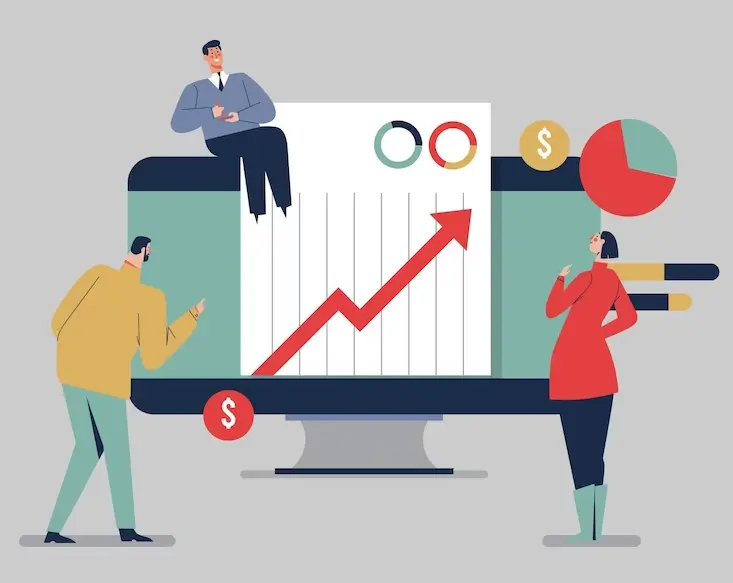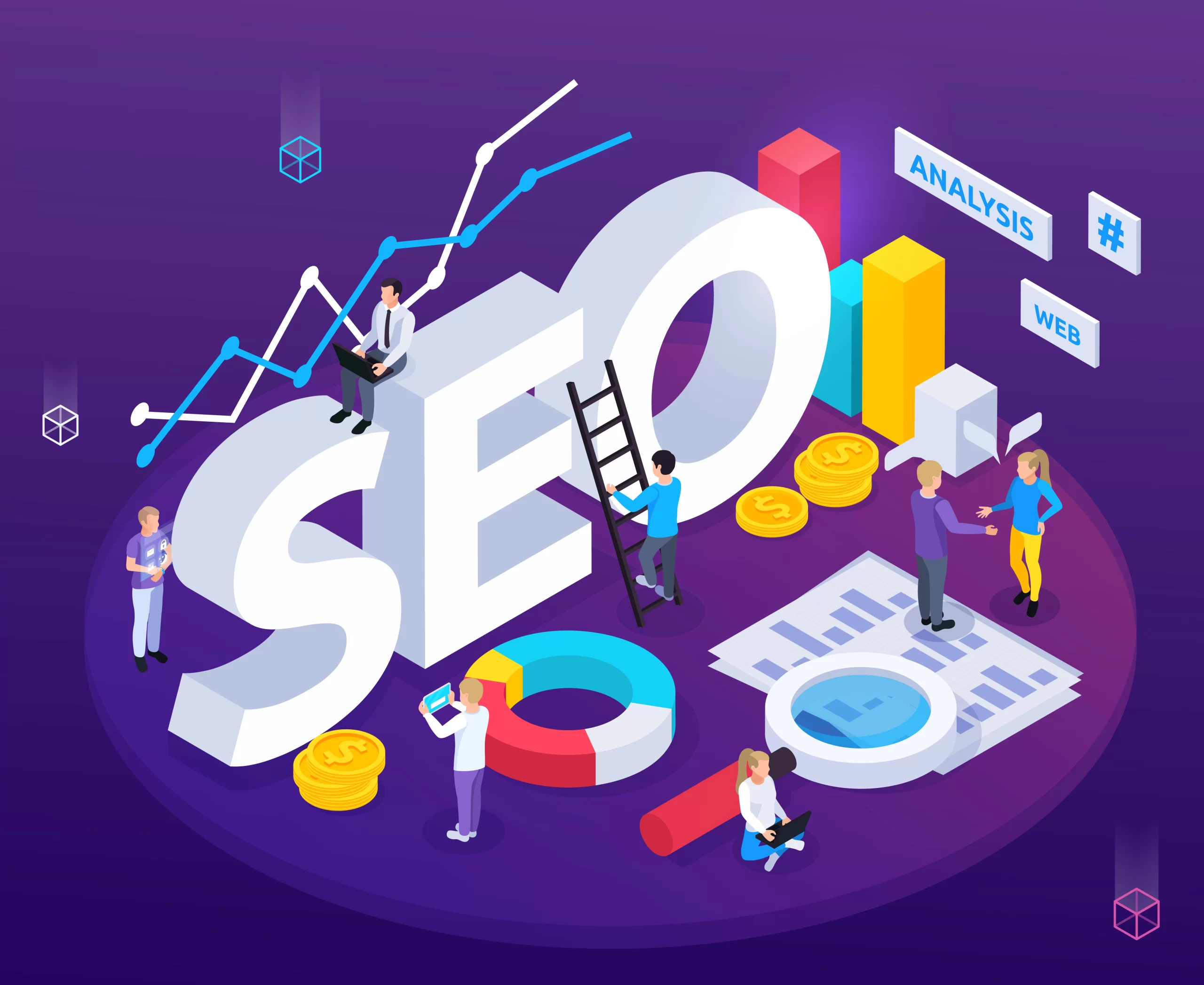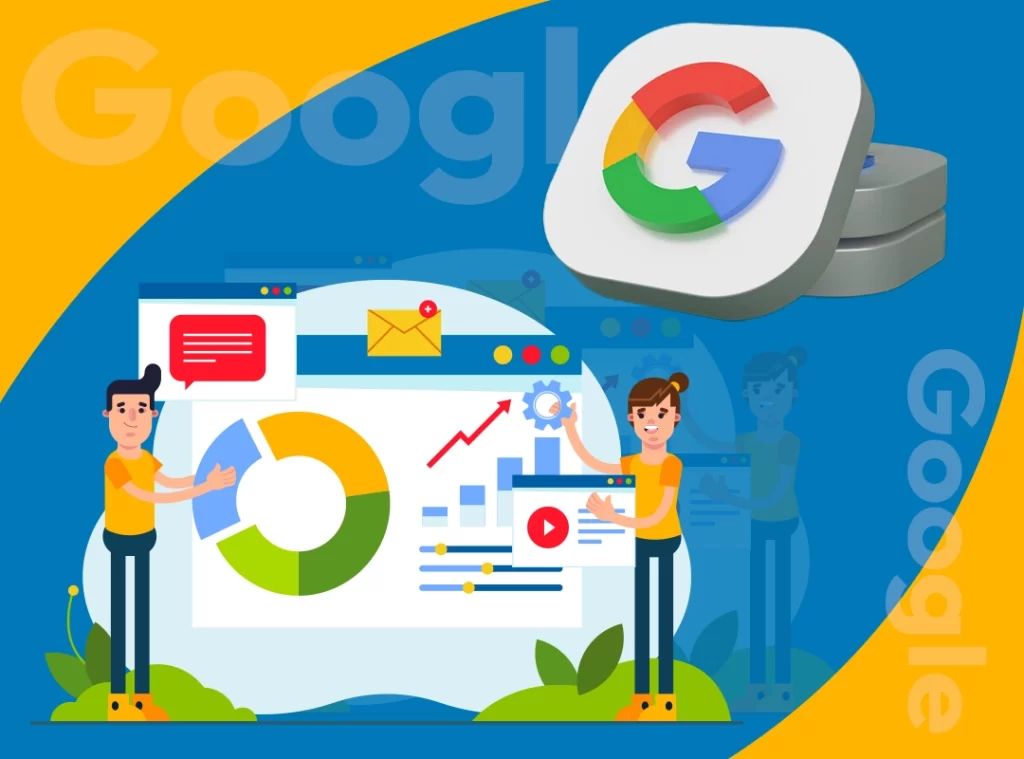Off-Page SEO : What is it and how to use it?
Table of Contents
Search Engine Optimization has become an important tool for most businesses to generate higher traffic for their site and rank higher on Google for conversions.
If you want any of your clients to find your website, you need to prioritize using SEO. Unlike some misconceptions, it doesn’t just revolve around strategies and actions taken inside your website. That’s where Off-Page SEO comes into play.
Despite many businesses’ prioritizing On-page SEO, an estimation by Moz shows that off-page SEO strategies make up more than 50% of Google’s search engine ranking factors.
Once you understand the importance of Off-Page SEO, it will help you in boosting your website’s visibility. So, if you want to learn more about Off-Page SEO and how to use it best, read ahead.
We’re here to guide you through the maze and unlock your website’s full potential. Let’s talk about your SEO goals and craft a personalized strategy for success.

What is Off-page SEO?
Off-Page SEO or Off-Site SEO refers to actions taking place off your website, that determine your ranking in the Search Engine Results Page (SERPs).
To explain in short off-page SEO involves the things that you do away from your site to get Google or other search engines to see your website as trustworthy.
A strong Off-Page SEO strategy distinguishes your ranking from your competitors’ ranking within the SERPs. Traditionally, it means acquiring links. Since links are the most important factors of ranking, off-page optimization is important in SEO.
It is a strategy for bringing attention to your site. When integrated with on-page SEO and technical SEO, off-page SEO can be beneficial for search visibility, crawling, indexing, traffic, and conversions.
The common off-page SEO actions include building backlinks, branded searches, and increasing engagement on social media and guest blogging.

Why is it important?
You might be wondering what are the benefits of Off-Page Optimization. Search Engines weigh various factors when determining a page’s ranking.
While some are based on website content and performance, google also gathers its understanding of your site through outside sources of your domain. That’s why Off-page SEO is important.
Link building, an effective off-page SEO strategy is one of the top-ranking off-page SEO factors since Google consists of page rank, an algorithm that analyses a page’s backlinks for quantity and quality.
A recent study found that websites with a vast number of backlinks tend to rank higher in search results. Hence, the more high-quality backlinks you have, the higher your website is likely to rank on the search engine results page.
Off-page SEO primarily gestures backlinks from authoritative and relevant websites to endorse your website’s quality. Search engines like Google, value these endorsements and use them as a ranking factor of SEO.
Link building in Off-page SEO
Link building in off-page SEO is the means of acquiring other websites to link to the pages of your site. In SEO, these links are known as backlinks. Backlinks are the key approaches of search engines in ensuring that your website is accredited and trustworthy.
The more backlinks from high-authority sites a page has, the more authoritative it may seem to Google. And that can be beneficial for the page to rank higher.
However, not all backlinks created are effective. To be compelling, backlinks must come from first-rate websites that are relevant to your industry or niche.
There are many different strategies for link building like guest blogging, resource page link building, broken link building, etc. At Raysoft, we use a range of link-building strategies to ensure businesses improve their search engine rankings and drive more website traffic.
Regardless of how you win links, those that offer the greatest contribution to SEO efforts generally pass the most equity to your content. Various factors contribute to the equity passed, like:
- The trustworthiness of the linking site
- The “freshness” of the link
- The linking site’s popularity
- The number of other links on the linking page
- The anchor text used on the linking site
- Authority of the linking domain and page
- How the linking site’s topic is related to the site being linked to

Difference between On-Page SEO and Off-Page SEO
Both the On-page and Off-page SEO are different but equally important. On-page SEO is everything that you can directly control on your website and Off-page SEO includes actions that happen away from it.
While on-page SEO focuses on optimizing your website’s content, structure, and HTML elements, off-page SEO primarily considers external factors that impact your website’s visibility and credibility in the search engine rankings page (SERPs).
On-page SEO includes the content, title tags, keyword usage, SEO-optimized URLs, internal links and image alt text with full control over the page.
However, Off-Page SEO includes different techniques and strategies to build your online reputation, generate quality backlinks, and boost your brand’s presence across the web with limited control over the page.
On-page SEO tools
- Keyword Magic Tool
- SEO Content Template
- SEO Writing Assistant
- On-Page SEO Checker
Off-page SEO tools
- Link Building Tool
- Backlink Audit
- Social Poster
- Prowly
- Brand Monitoring
Off-page SEO checklist
Off-page SEO is a critical aspect of digital marketing that focuses on enhancing your website’s visibility and credibility beyond the boundaries of your site. Here are a few ways on what to do in and how to do Off-Page SEO:
1. Link Building
Link Building involves acquiring hyperlinks from other websites to your own. These links act as digital endorsements, signaling to search engines that your content is reliable and valuable. Backlinks from high-quality websites not only enhance your search engine ranking but also drive organic traffic.
2. Social Media Engagement
Active participation on social platforms fosters brand visibility and facilitates direct interaction with potential customers. Social media signals are increasingly considered by search engines, making engagement on platforms like Facebook, Twitter, and Instagram necessary for enhancing online presence and credibility.
3. Content Marketing
Content Marketing involves creating and distributing valuable, relevant, and consistent content to attract and engage a targeted audience. Compelling content not only attracts organic traffic but also encourages natural link-building as other websites reference your informative articles, blog posts, or videos.
4. Local SEO
Local SEO focuses on optimizing your online presence for local searches. For businesses targeting a specific geographical area, local SEO tactics like optimizing Google My Business listings, getting positive online reviews, and ensuring accurate NAP (Name, Address, Phone number) information across online directories enhance visibility in local search results.
5. Technical SEO
Technical SEO is crucial for search engine crawlers to understand your website’s structure and content. It involves optimizing elements such as website speed, mobile-friendliness, secure connections (HTTPS), XML sitemaps, and canonical tags. A technically sound website provides a better user experience and gets favored by search engines, leading to higher rankings.

Conclusion
SEO is a competitive and evolving business. So, don’t just restrict your optimization efforts inside your website. When it comes to optimizing your site’s off-page SEO, backlinks can prove to be irreplaceable.
If you need to enhance your website as well as using SEO, then you need to include off-page optimization in your SEO plan. If you’re looking to grow your business, reach out to us for off-page SEO services to stand out in the digital market.






